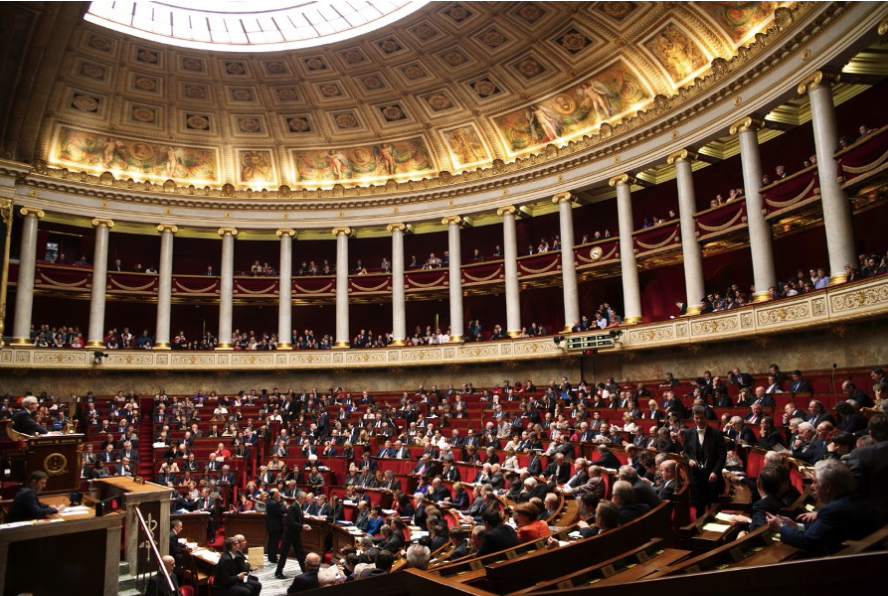Constitutional Controversy- France’s 49.3 Drama
By Margaux Baudry, Read: 3min20
Used 25 times since 2020, Article 49.3 is both a political tool and a constitutional controversy. It is surely the most known, debated, and hated provision of the French Constitution. Deemed undemocratic, and even authoritative, it has been a central point of discussion in the French political debate since 2022. Ex-Prime Minister Michel Barnier triggered it on December 2nd 2024 to force the new social security budget and it cost him his removal from the Government. But what does the procedure of Article 49.3 look like? How can the National Assembly counter it? And why did it play a role in recent events? Here’s all you need to know about the drama surrounding Article 49.3 .
Origins and function of Article 49.3
Introduced in 1958 under the Vth French Republic, Article 49.3 is designed as a “last resort” measure to be relied upon in exceptional cases. It aims at preventing crises and overcoming the weaknesses of the IVth Republic such as “deadlock” and successive rapid government takeovers. Hence, Article 49.3 allows the French Government to force the passage of a bill through the National Assembly (Parliament) without a vote. Seeing how many times it has been invoked in the past few years, one might wonder how desperate Emmanuel Macron’s Government must have been to rely on it so often.
“Encore un 49.3!”: the overuse of the provision
Former Prime Minister Elisabeth Borne is famous for using Article 49.3 twenty-three times in just 1 year and 7 months (between 2022 and 2024). In other words, her government silenced the National Assembly more than once per month on average.
It cannot be denied that the French National Assembly was so profoundly divided that their constant opposition complicated votes on urgent reforms and undermined the Government’s stability, but was Article 49.3 truly the only solution? Irrespective of this, the Article is highly criticized as it allows the Government to take precedence over the representatives of the people, the Members of Parliament (MP). This contraction of power by the Government is seen as a direct challenge to the principles of parliamentary democracy and reduces MPs to simple spectators. Moreover, the frequent use of theArticle undermines the public’s trust in democratic institutions.
The role of motions of no confidence
Nonetheless, Article 49.3 leaves the MPs with the option of tabling a “motion de censure” (motion of no confidence) within 24 hours to counter it. If the majority is obtained (288 votes), the Government is overthrown; otherwise, the law is passed.
Michel Barnier's case
Ousted Prime Minister Michel Barnier recently used Article 49.3 to push the social security budget through without an assembly vote. The answer of the MPs: 2 motions of no confidence! One was introduced by the leftist coalition Nouveau Front Populaire (New Popular Front) and another by the far-right party Rassemblement National (National Rally).
If multiple motions of no confidence on the use of the Article are tabled at the same time, the one with the most signatures is voted on first- in this case, the NFP’s. On the 4th of December 2024, it reached an absolute majority with 331 votes; for the first time in 62 years, the Government was overthrown.
What makes the motion of no confidence special is that the MPs are not asked to vote on a text. They vote for accusations against the Government. In other words, they are asked whether they trust – or still trust- the Government. Therefore, opposite parties (left coalition and far right) joined their votes together to achieve their shared goal of Michel Barnier’s government’s removal.
Implications for France’s political future
With the motion of no confidence successfully voted against Michel Barnier, the French National Assembly is taking a turn!Indeed, the Parliament is composed of three groups with a shared opposition to Macron, namely: La France Insoumise (far-left), the Parti Socialiste (left) and the Rassemblement National (far-right). Which makes it impossible to invoke Article 49.3, as the three parties collectively hold enough votes to block any future attempts to use it. Is it the end of Article 49.3? Does this mean that power is returning to a National Assembly with the common objective of putting an end to the Macron era?
